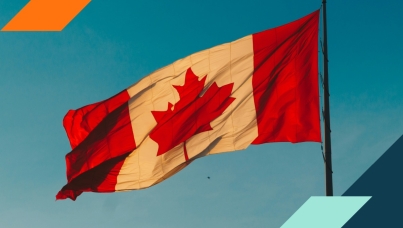Federal Election Poll November 12, 2000
Majority (51%) Now Believes Liberals Do Not Deserve to be Re-elected
Toronto, ON -- The latest Ipsos-Reid/CTV/Globe and Mail federal election survey shows that the overall support for each of the federal parties is stable with the Liberals at 43%, the Alliance at 27%, NDP at 10% and the PCs at 8%. Eleven percent of Canadians are undecided.
Regionally, The Liberals are up slightly in the West at the expense of the Alliance but both parties are holding steady in Ontario. The Alliance is down in Quebec and the Atlantic provinces with the Bloc Quйbecois and the NDP picking up support in each of those regions respectively.
While the overall numbers are steady, comparing the results obtained before the debates to those obtained after the debates shows that the debates seem to have hurt the Liberals. Prior to the debate, Liberal support was up slightly to 44% (from 42% on Nov. 2) and Alliance support was down slightly to 26% (from 29% on Nov. 2). After the debate, Liberal support dropped four points to 40% while Alliance support rose two points (within the margin of error) to 28%.
Furthermore, results from a survey conducted after the leaders' debate shows that although Canadians still believe Jean Chrйtien (30%) would make the best Prime Minister, there has been a 6 point drop since November 2, 2000. Similarly, there has been a 3 point drop in the percentage of Canadians who say that Stockwell Day (26%) would make the best Prime Minister. In contrast, Joe Clark emerges from the debates with a 7 point increase (from 14% to 21%) in the number of Canadians who say that he would make the best Prime Minister.
Underlying all of this is that a majority (51%) now believe that the Liberals "do not deserve to be re-elected.
These are the findings of an Ipsos-Reid/Globe and Mail/CTV poll conducted between November 3rd and November 11th, 2000. The poll is based on a randomly selected sample of 2,552 adult Canadians. The results are accurate to within 177 2.0 percentage points, 19 times out of 20, of what they would have been had the entire Canadian population been surveyed. The margin of error will be larger within regions and for other sub-groupings of the survey population. The data were statistically weighted to ensure the sample's regional and age/sex composition reflects that of the actual Canadian population according to the 1996 Census data. Pre-debate surveying of 1502 Canadians was conducted between November 3rd and November 7th and has a margin of error of 177 2.5 percentage points, 19 times out of 20. Post-debate surveying of 1050 Canadians was conducted between November 10th and November 11th and has a margin of error of 177 3.0 percentage points, 19 times out of 20.
While Overall Numbers Stable (Liberals 43%, Alliance 27%) Debate Spells Trouble For Liberals
Overall, support among decided voters for the federal parties has remained relatively stable, with the Liberals at 43%, Alliance at 27%, NDP at 10% and the PCs at 8%. Eleven percent of Canadians say they are undecided - a four point rise since November 2, 2000.
- In BC, support for the Alliance has fallen 6 points (from 52% to 46%) since the last poll while support for NDP (11% - up 4 points) and the Liberals (37% up support is up 3 points) is up slightly (within the margin of error). The PCs are holding relatively steady at 4% support.
- In Alberta, support for each of the parties has remained fairly stable with all changes remaining within the margin of error. The Alliance continues to lead in the province with 59% support while the Liberals place second with 27% support. The NDP (7%) and the PCs (6%) are virtually tied for fourth place.
- In Saskatchewan , the Alliance (43%) is ahead of the Liberals (32%) with the NDP in third (18%) while the PCs trails far behind at 5%.
- In Manitoba, the Liberals (34%) and the Alliance (34%) are still neck and neck while the NDP is not far behind at 21% and the PCs lag at 9%.
- Ontario remains the Liberals' stronghold, with Liberal support (52%) still double that of the Alliance (26%). Meanwhile, the NDP (10%) and the PCs (10%) have not made any inroads.
- Support for the Alliance in Quйbec (6%) has dropped 4 points and is now in the same range as the PCs (5%) and the NDP (4%). Meanwhile support for the Bloc has risen slightly to 46% (up three points) and Liberal support has remained static at 38%.
- Alliance support (9% - down 6 points) has also dropped in Atlantic Canada. The NDP (18%) has picked up 8 points in the region, while the Liberals (47%) and the PCs (24%) have maintained their first and second place positions.
Polling conducted both before and after the debates shows a drop in Liberal support as a result of the debates. Heading into the debate, the Liberals were up slightly (2 points) to 44%, while the Alliance had slipped 3 points to 26%. However, polling conducted after the debate shows the Liberals dropping 4 points to 40% and the Alliance gaining back 2 points to 28%. Support for the NDP (10% pre-debate, 9% post-debate) and the PCs (8% pre-debate, 9% post-debate) remained largely stable as did support for the Bloc within Quйbec (47% pre-debate, 44% post-debate).
Chrйtien (30% - Best PM) Hurt by the Debate - Clark on the Move (21% - Best PM)
Overall, a third (34%) of those who watched either the French or the English debates say Joe Clark won while almost a quarter (23%) say Stockwell Day won. However, underlying the overall result is a clear east/west divide on who won. In the west, Stockwell Day emerges as the winner with 44% of those living in the western provinces saying he won compared with only 16% of those living in the east. In contrast, Joe Clark (38%) was the winner in the east but only 23% of westerners felt he won.
Just 15% of those who watched the debates say that Prime Minister Chrйtien won, placing him third behind Day and Clark in all provinces except Quйbec where he places third behind Duceppe and Clark. A similar number (14%) of viewers say they don't know or are unsure about who won the debate.
Further, the poll suggests that Canadians were generally not pleased with how the leaders conducted themselves during the debate. A majority (55%) agree that in the debates none of the party leaders behaved in a way that they consider appropriate for a Prime Minister.
Underscoring the Prime Minister's poor performance in the debates, the percentage of Canadians who say that regardless of party Jean Chrйtien (30%) would make the best Prime Minister has dropped six points since the last poll. Similarly, the percentage of Canadians who say that Stockwell Day (26%) would make the best Prime Minister has dropped three points.
In contrast, on the heels of a strong performance in the debates, the percentage of Canadians saying that Joe Clark (21%) would make the best Prime Minister has risen 7 points since the last poll. Meanwhile just 8% say Alexa McDonough, 6% say Gilles Duceppe and one in ten Canadians (10%) are unsure which of the five leaders would make the best Prime Minister.
Looking at momentum (the difference between the percentage who say their opinion has "improved" minus the percentage who say their opinion has "worsened") for the parties and their leaders after the debates shows a slide for the two front-runners and a big boost for Clark. In particular, Stockwell Day and the Alliance have seen their strong positive momentum come to a standstill as the percentage of Canadians reporting that their opinion has "improved" (29%) is now only 2 points higher (compared with 13 points higher in the last poll) than the percentage who say their opinion has "worsened" (27%). Meanwhile, Jean Chrйtien and the Liberals' negative momentum (9% "improved", 38% "worsened", net -29) has increased slightly (by two points).
In contrast, Joe Clark and the PCs have had surge in positive momentum with the percentage of Canadians who say their opinion of him has "improved" (40%) is now 26 points higher than the percentage who say their opinion has "worsened" (14%) - a 22 point increase in momentum. Alexa McDonough and the NDP (20% "improved", 12% "worsened", net +8) and Gilles Duceppe and the Bloc (Quebec only: 31% "improved", 13% "worsened", net +18) also show an increase in positive momentum after the debates.
Majority (51%) Now Believes Liberals Do Not Deserve to be Re- elected
For the first time since tracking began in March 1997 a majority (51% - up 3 points) of Canadians say the Liberals do not deserve to be re-elected. Forty-four percent (down 5 points) still say the Liberals deserve to be re-elected while 4% are unsure. Further, 53% of Canadians agree that "Jean Chrйtien doesn't have what it takes to lead the country anymore", with strongest agreement in BC (58%), Alberta (60%) and Quйbec (60%).
Amid continuing controversy over the Alliance's plans for healthcare, 47% of Canadians agree that "Stockwell Day and the Alliance have a hidden agenda" (up 4 points since November 2, 2000) and 58% agree that "the Alliance Party is just too new and inexperienced to be trusted to run our government" (up 3 points since November 2). Ontario (60%), Quйbec (70%) and the Atlantic provinces (63%) are most likely to say the Alliance is too inexperienced.
Nonetheless, only a third (36%) of Canadians agree with the statement "I feel I have no choice but to vote for the Liberals because the other parties aren't really up to running the country". The country is divided on whether the Liberals are "arrogant and corrupt" with 49% who agree and 49% who disagree. A majority of residents in BC (53%), Alberta (58%) and Quйbec (54%) agree while a majority of residents in Manitoba/Saskatchewan (55%), Ontario (54%) and Atlantic Canada (50%) disagree.
When it comes to which of the three following factors: a party's stand on the issues, the party leader or the quality of individual candidates is most important to Canadians in making up their minds, 52% say the party's stand on the issues is the most important. For a quarter (24%) of Canadians the ability of party leaders is the most important consideration, while one in five (21%) say the qualities of individual candidates in their constituencies is the most important consideration.
Healthcare (64%) continues to be the issue which Canadians feel should receive the greatest attention from Canada's leaders. Education (24%) is second, followed by deficit/debt/government spending (18%).
For more information on this news release, please contact:
Darrell Bricker
President and COO
Public Affairs
Ipsos-Reid
(416) 324-2900



